Valentine’s Day letter in the archives
- 14th February 2022
A Valentines letter written to ‘Miss Dance’ found in the archives reveals a glimpse of a love story in the nineteenth century.
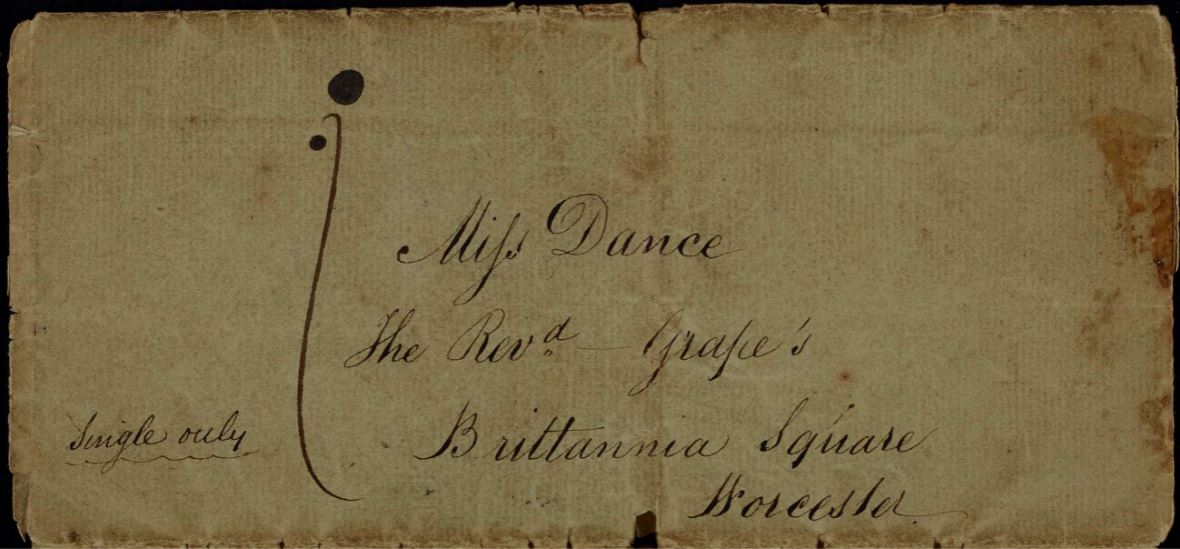
A ‘bright’, ‘fair’, ‘kind’ young lady, with ‘hazel’ hair and eyes, Miss Dance apparently attended Mrs Dunn’s party where she sat beside her Valentine at supper. While others played card games, Miss Dance apparently only wanted to dance.
The Valentines letter in the Worcestershire Archives with reference 705:1471 BA 14492 reads thus:
‘Tis for thee dearest Girl I’ve raised my poets strain,
For thou art the dear object I so strive to gain,
‘Tis for thee I contend with many for a chance
Dear kind and only belov’d Miss Dance,
When first we met at Mrs Dunns evening party,
Some were for wist, others for echarle [ecarte]
But you lov’d object were of the dancers gay,
And strove to dance your serious care away
When I beheld thee bright, and blooming fair,
And esteem’d thee loveliest of all women there
For your eyes and hair no hazel colour matched
And lips and cheeks with loveliness o’er thatched
Then own [stairs?] to supper we did glide,
And took our seats together, side by side,
While all around sought to release the table of its sighs,
Save me; My supper was to feast my eyes
Now be not angry dear lovely maid
With him whose confefsious to acknowledge is afraid,
Though they be the dictates of a faithful heart,
Which would rather bleed for thee than from thee part
And though much I wish that thou wert mine,
I cannot wish you for a Valentine,
For they only love and, and are belov’d, for one short day,
But I will be yours forever – “if I may”
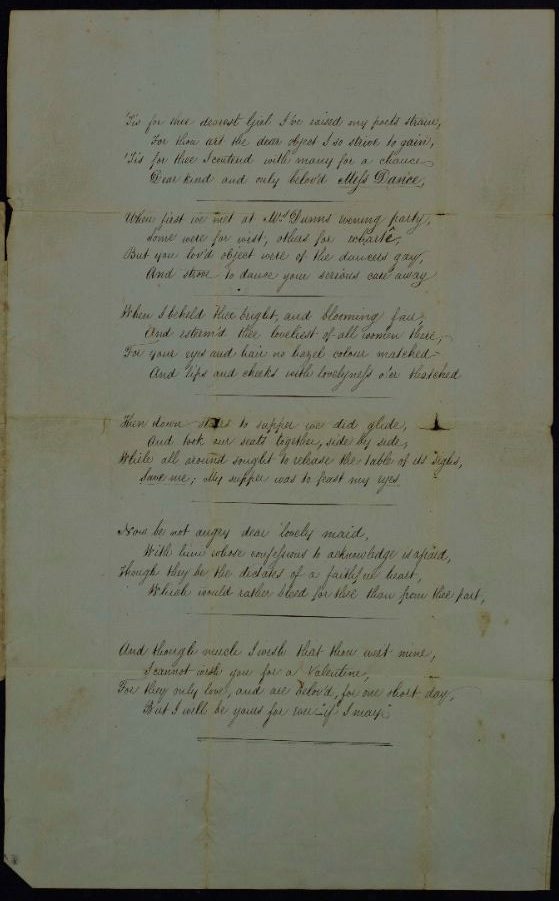
The letter was sent to Elizabeth Dance who lived with her uncle Rev Richard Grape at Albany Terrace, near Britannia Square in Worcester. According to Rev Richard Grape’s will, Elizabeth Dance was his ‘little favourite’. Grape’s probate in Canterbury leaves his house and contents including books, prints, pictures, manuscripts, plate, linen and furniture to ‘Elizabeth Dance, spinster, my little favourite now living with me’ along with £500 cash and £30 per annum.
Rev Richard Grape lived at Albany Terrace until his death in 1840 when he was buried in Worcester. He had previously lived nearby at the Tything according to a directory of 1820. By the 1841 census, Just a year after Richard’s death, Elizabeth Dance had either moved away or was absent because we were unable to locate her. Her uncle the Rev Richard Grape had been quite a local personality.
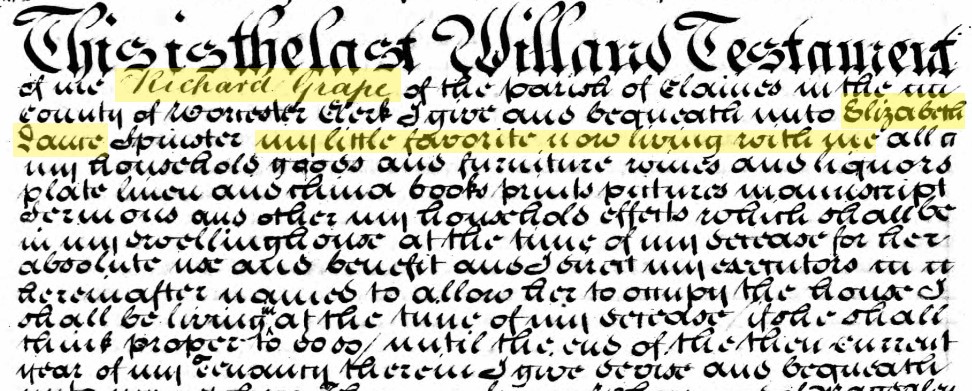
Richard Grape’s Will
Richard Grape had been born in Worcester in 1777 to William and Hannah Grape from Worfield, Shropshire. He graduated from Worcester College Oxford University with an MA in 1802. Thomas Henry Whorwood attended college alongside him, and later married his sister Mary, to whom Grape left £30 per annum for her ‘own use independently for a husband’. Thomas Henry Whorwood, and later his son, also Thomas Henry Whorwood, were both reverends in Headington, Oxfordshire.
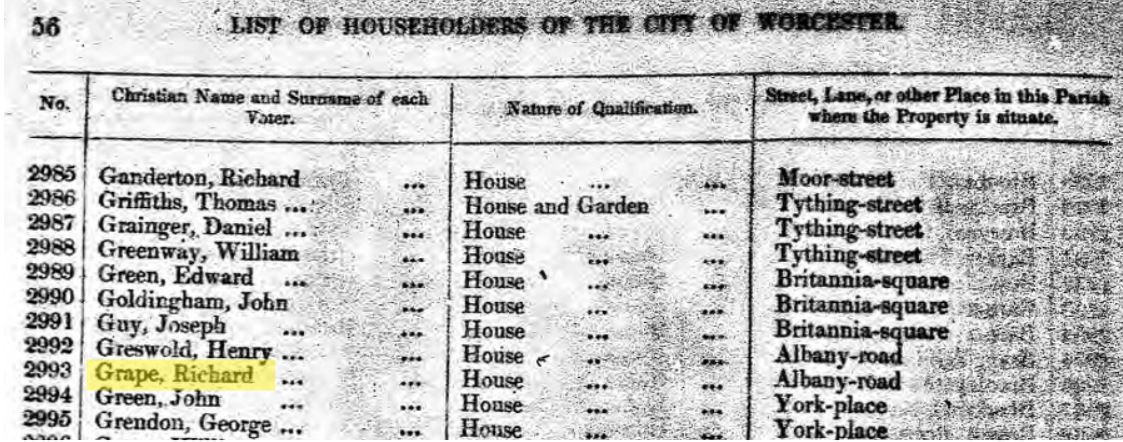
Richard Grape on the Electoral Roll
Grape’s will does not mention any other Dance family members, but he left money to his cousin Reverend Edmund Sharington Davenport of Davenport House, Shropshire (who passed away just a year after Richard and was ‘buried with his ancestors in Worfield’) whose father David Bromley was listed on the census as a ‘racehorse owner’. He even left to his servant Thomas Summers all his ‘wearing apparel, £100, personal linen and a mourning suit’.
John Noake in his book ‘The Rambler in Worcester or Stray Notes on Churches and Congregations’, described Grape as ‘the eccentric rector’ of Hindlip. He apparently read marriage banns very quietly do that no third party could object, and on cold days having walked from Worcester city to the church at Hindlip (about an hour’s walk) if there was only a small congregation he would suggest instead they should stay at home and read ‘pious books at their own comfortable firesides’ rather than shivering and ‘shaking out their prayer’ in the cold church.
St James Church at Hindlip, where Grape was rector, was rebuilt 1863 after Grape was rector, but retains a fifteenth century tower. It is now the West Mercia Police Chapel on the grounds of Hindlip Hall which is now used by the West Mercia Police as their headquarters.
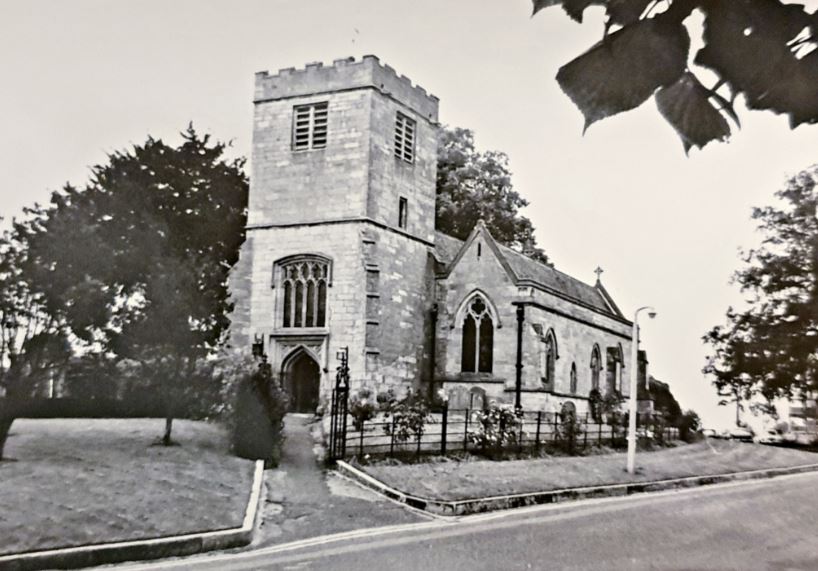
St James C of E church, exterior, Hindlip. Worcestershire Photographic Survey 76947
Post a Comment